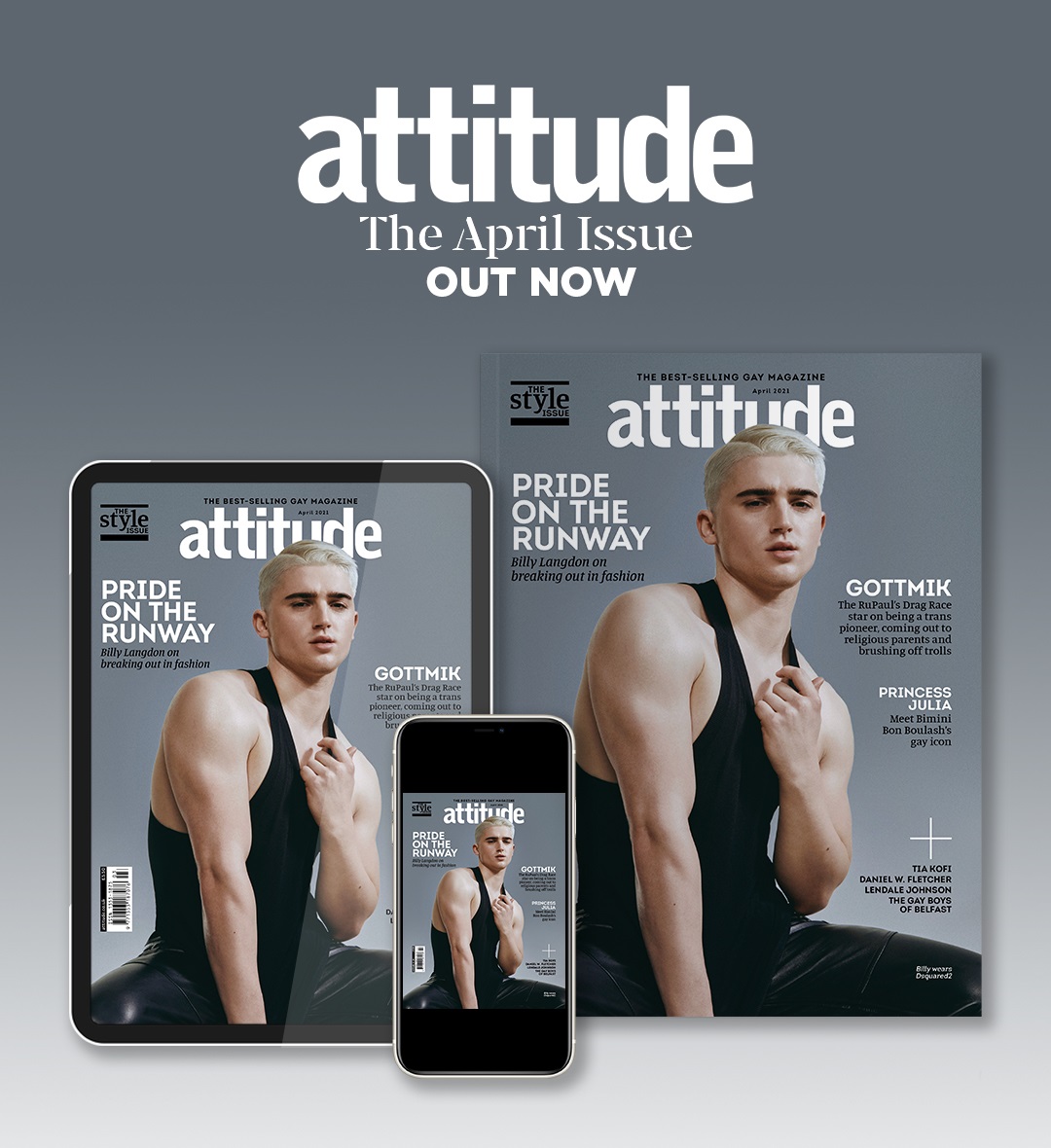Gay men and toxic masculinity: Reflections on femme-phobia – WATCH
25-year-old Wesley Spencer shares his experiences in the Attitude April Style issue.
By Will Stroude
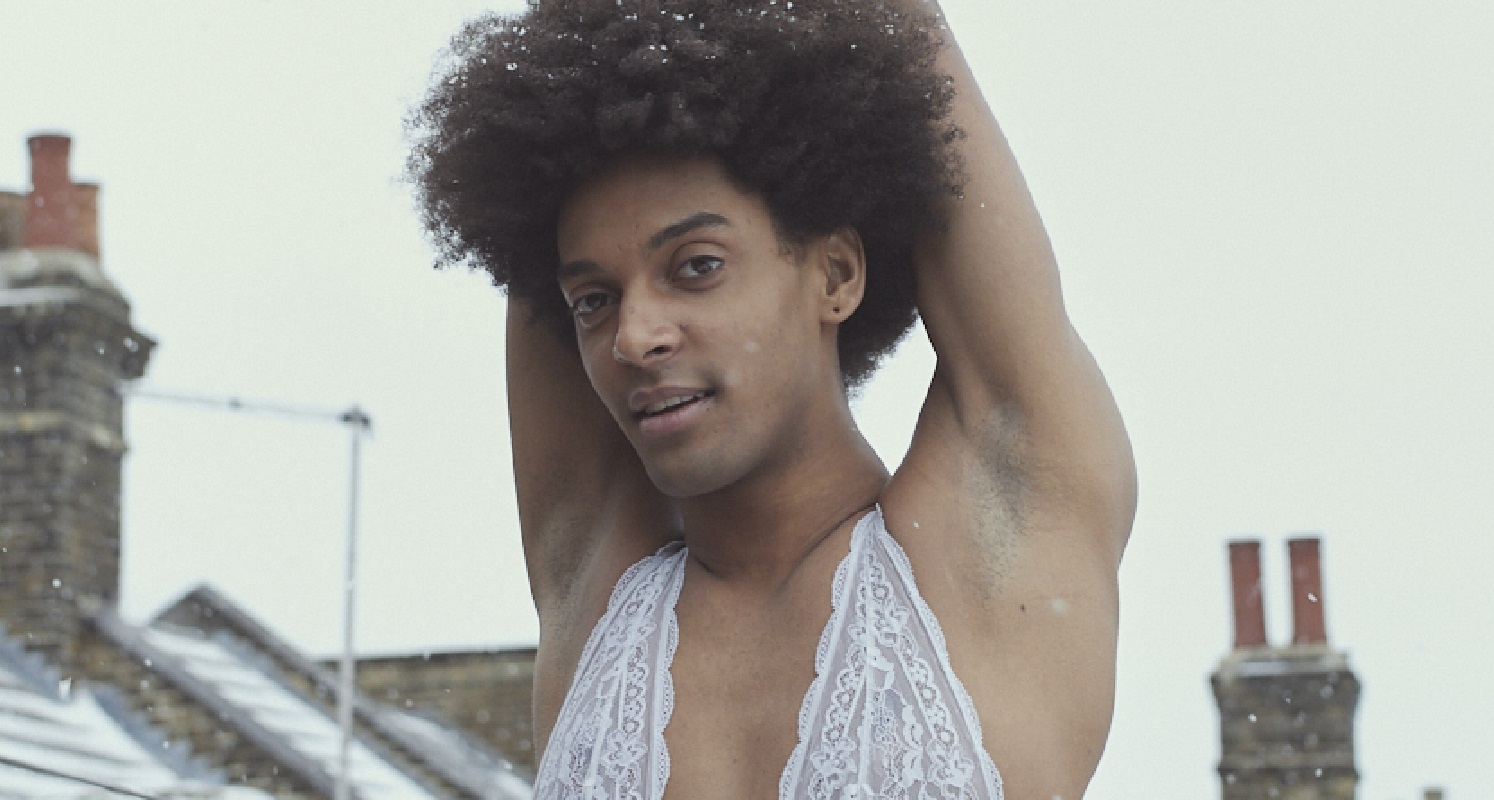
Challenging gender stereotypes (and looking fierce while doing so) Wesley Spencer, 25, opens up about toxicity within the gay community – and why it’s important to love the skin you’re in.
“When somebody degrades you or insults you – ‘You’re not muscly enough’ or ‘You’re not masculine enough’ – it’s hurtful”, says Wesley as he bares his body and soul for the ‘Real Bodies’ series in the Attitude April Style issue, out now to download and to order globally.
Retail worker Wesley, who describes himself as “the line between male and female”, explains how toxic masculinity and femme-phobia from fellow gay men has affected him personally.
“I purposely don’t have my Instagram on my profile because I know it’s an instant judge before I’ve met anyone”, he says. “People are, like, ‘We’ve had a great time, really hit it off’ and then they ask: ‘Have you got socials?’ And I’m, like, ‘No.’ They’ll eventually find it and the atmosphere completely changes and it’s sad.
“Usually, it comes down to: ‘Oh… so you’re a drag queen?’ That’s an instant, ‘No, I’m not interested.’ Or it’ll be: ‘I didn’t realise you were so camp.'”
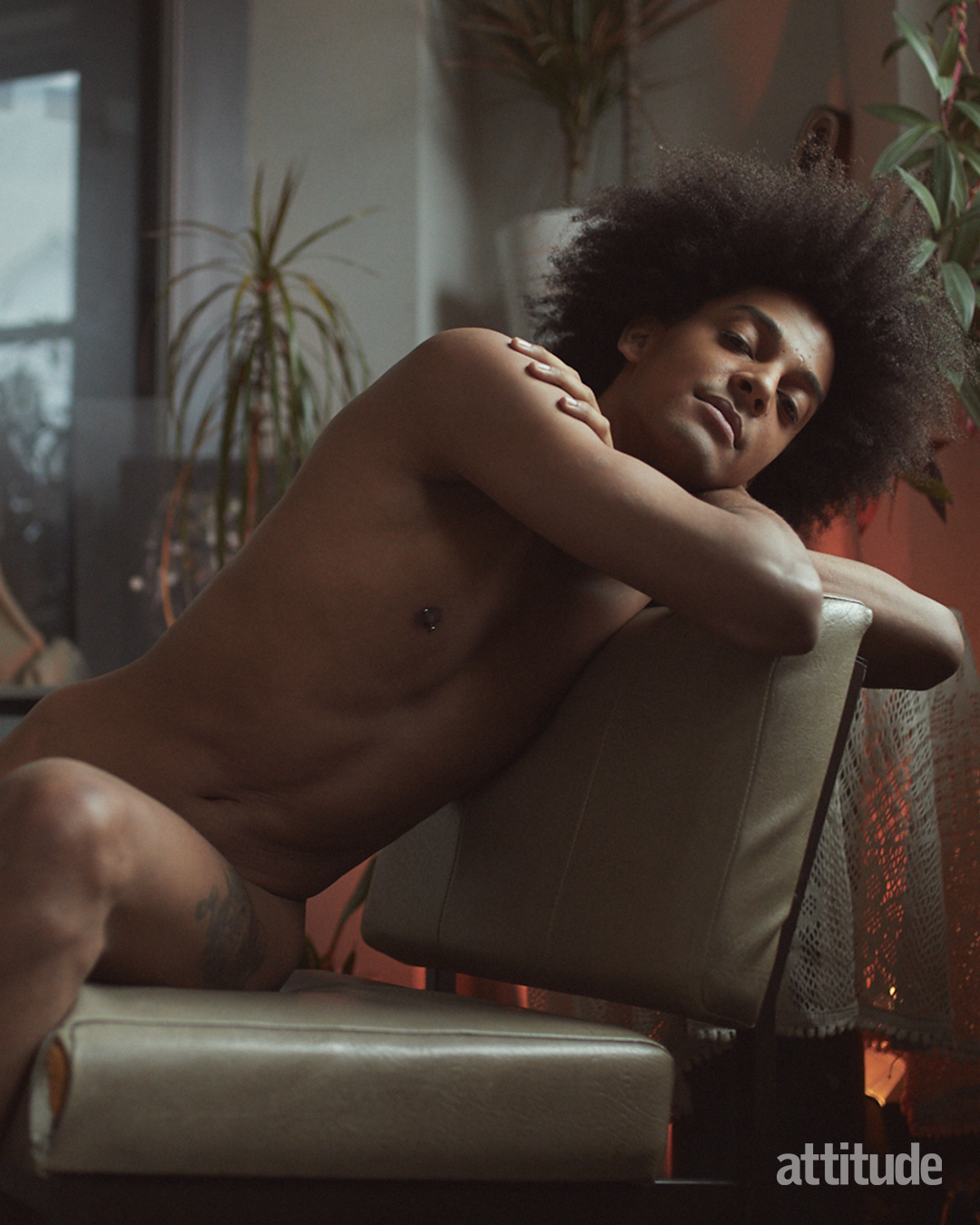
Wesley Spencer shares his experiences in the Attitude April Style issue, out now (Photography: Francisco Gomez de Villaboa)
He goes on: “That is one thing that really winds me up. Personally, I don’t see myself as camp. Yes, I am feminine, but people confuse camp and feminine as the same thing, which they’re not.
“I’ve had guys completely stop talking to me – it’s ridiculous – with no explanation, just gone.
“In the gay community, if you’re seen as being the slightest bit camp or feminine, the interest is lost. Not always, but that tends to be the trend.”
As he poses for his shoot with Attitude in east London, Wesley reflects on the negative reinforcement that means gay men often disavow those in the community who express themselves in a feminine way.
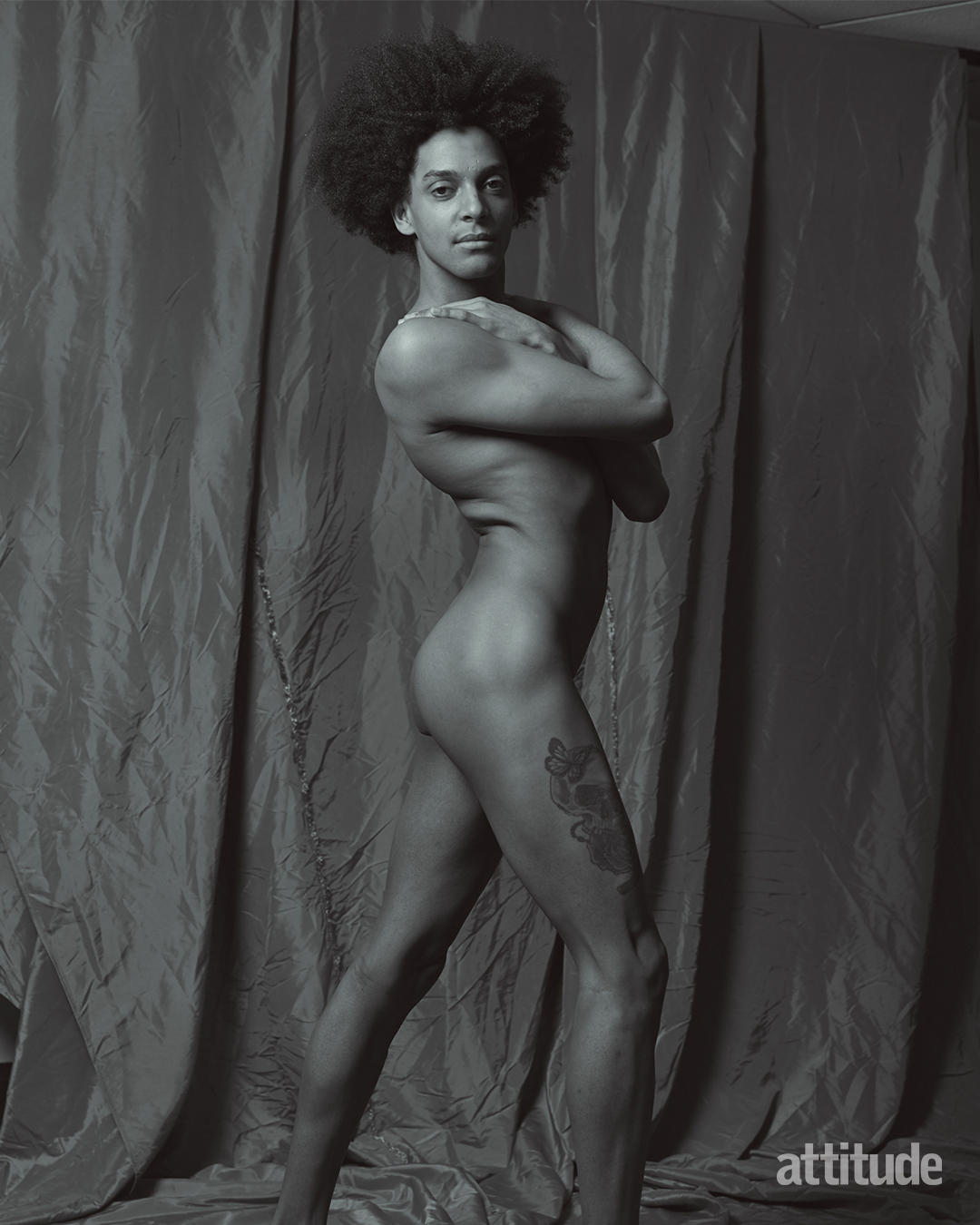
Photography: Francisco Gomez de Villaboa
“There is a really strong sense of homophobia within the gay community, because you get large amounts of gay men who are feminine or camp but they go out seeking masculine – or what they would perceive as masculine, so like a butch, manly-looking, hairy type of man – that it just really comes across as very homophobic”, he says.
“I was taught that to be masculine was to be a butch man and perhaps to be feminine was prancing around like a fairy, kind of. But in today’s society, I think to be a man is to fall down a certain route of masculinity… you know, certain careers like manual labour – to fall into fashion would be seen as feminine, I think. I don’t agree with this, but that is society.
“I would probably pinpoint myself as kind of the line between male and female – my fashion sense anyway. It’s like the perfect mix of masculine and feminine, I would say.
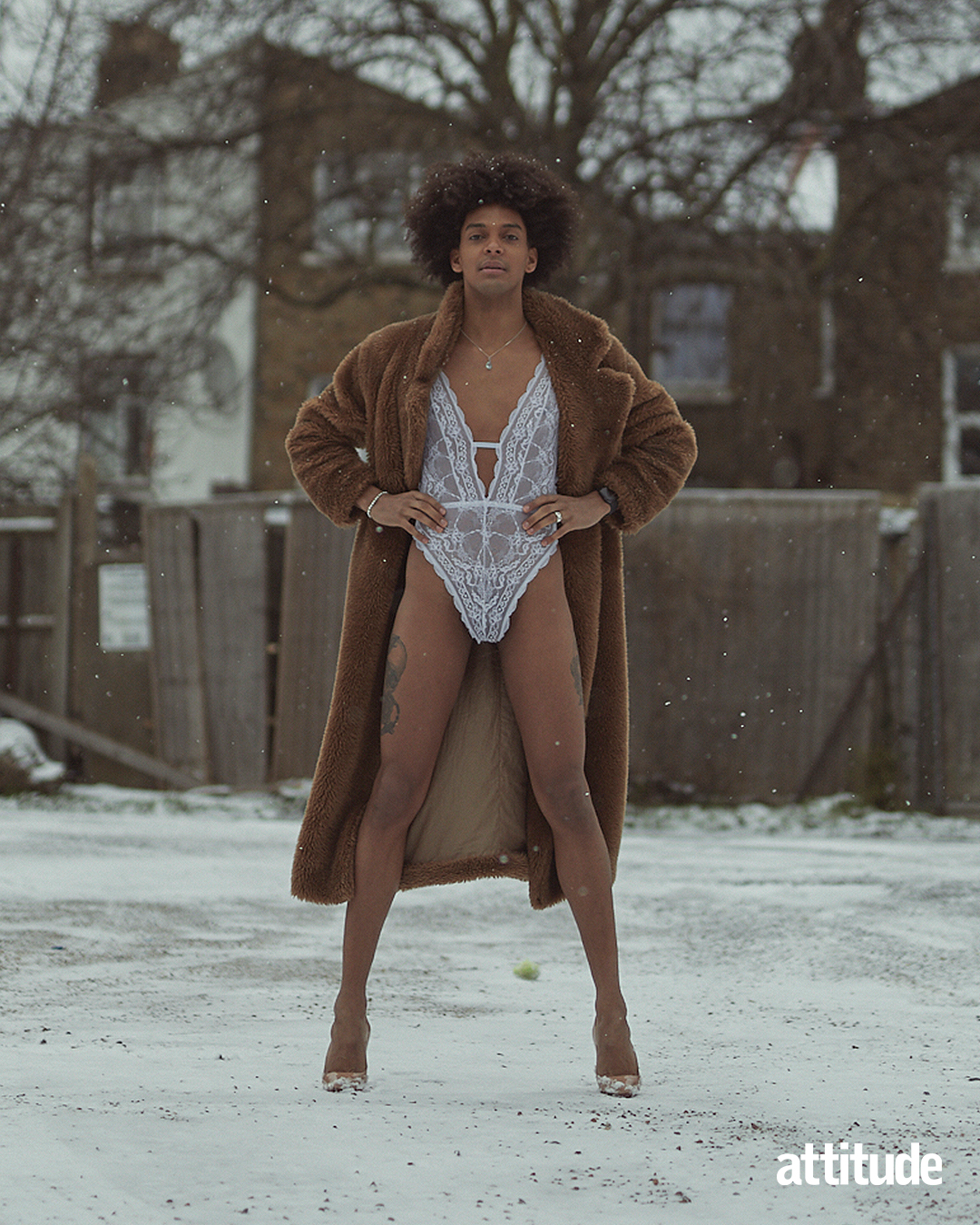
Photography: Francisco Gomez de Villaboa
“I think people have an idea in their head that they’re looking for a specific type, whether that be relationships, career, or just in life as friends. I think people tend to look for a specific set of masculine traits or feminine traits.
“I think typically in the gay world, to be feminine is – not frowned upon – but it tends to be disliked. So I think the slightest show of femininity in a gay person and people do tend to look elsewhere.
Wesley adds: “I think it’s also sad in the sense that to go out seeking masculinity also shows a form of yourself: is it some sort of insecurity[that] perhaps people are trying to hide, or they’re seeking something that they fear they don’t have in their own lives?”
Read the full interview in the Attitude April Style issue, out now to download and to order globally.
Subscribe in print and get your first three issues for just £1 each, or digitally for just over £1.50 per issue.
